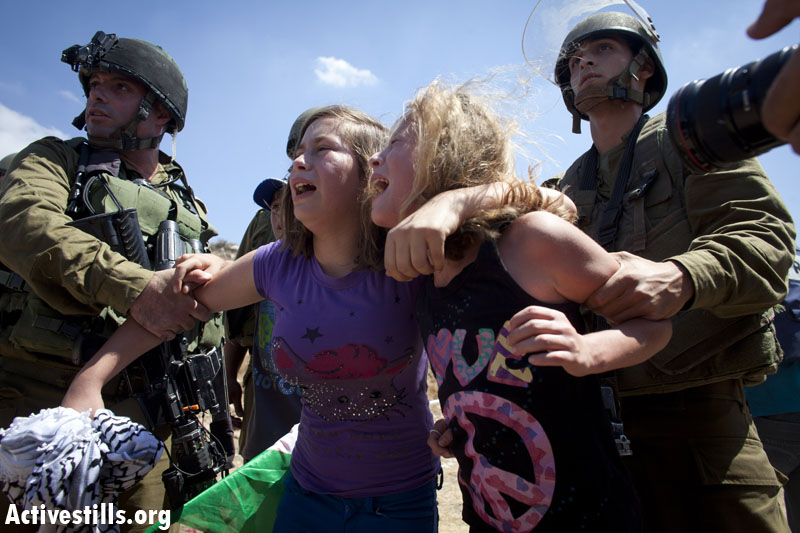Tag: An Nabi Saleh
-
Video: Soldiers attack children in Nabi Saleh and forcibly separate them from their detained mother
August 25 2012 | Popular Struggle Coordination Committee, Occupied Palestine Army held six detainees over eight hours, raided houses in the village, injuring several residents and using live ammunition Pictures: see here, here, here, and here During the weekly demonstration in the village of Nabi Saleh, yesterday, Friday, dedicated to support the Palestinian prisoners in Israeli jails, some of the…
-
Nabi Saleh: “The resistance is for our kids’ future”
By Markus Fitzgerald 15 August 2012 | International Solidarity Movement, West Bank On the evening of July 26, social media lit up with messages from residents of the village Nabi Saleh. “Four army jeeps and around 20 soldiers standing at the entrance” tweeted Manal Tamimi, and later, “for the third day (in a [row]) the…
-
Nabi Saleh: 11 arrested in weekly demonstration
By Hakim M. 16 July 2012 | International Solidarity Movement, West Bank The weekly demonstration in Nabi Saleh faced brutal repression from the Israeli military on Friday, July 13. Beginning at 1:30 p.m., Palestinian and solidarity activists walked down the village road to find it closed off by Israeli border police and a ‘skunk’ tank,…

